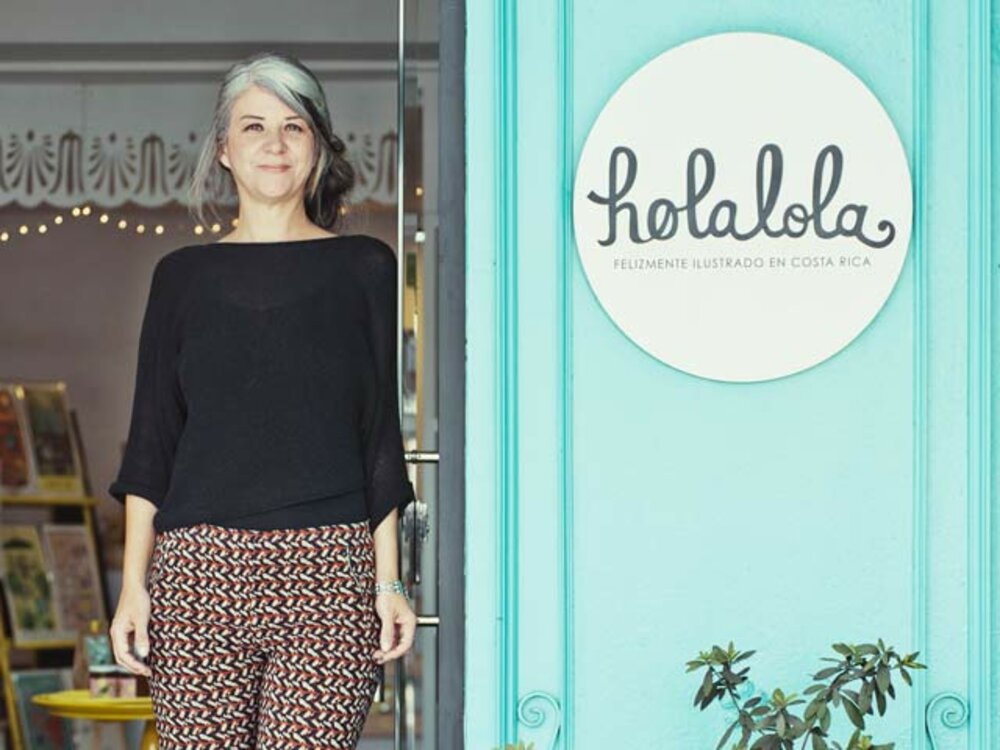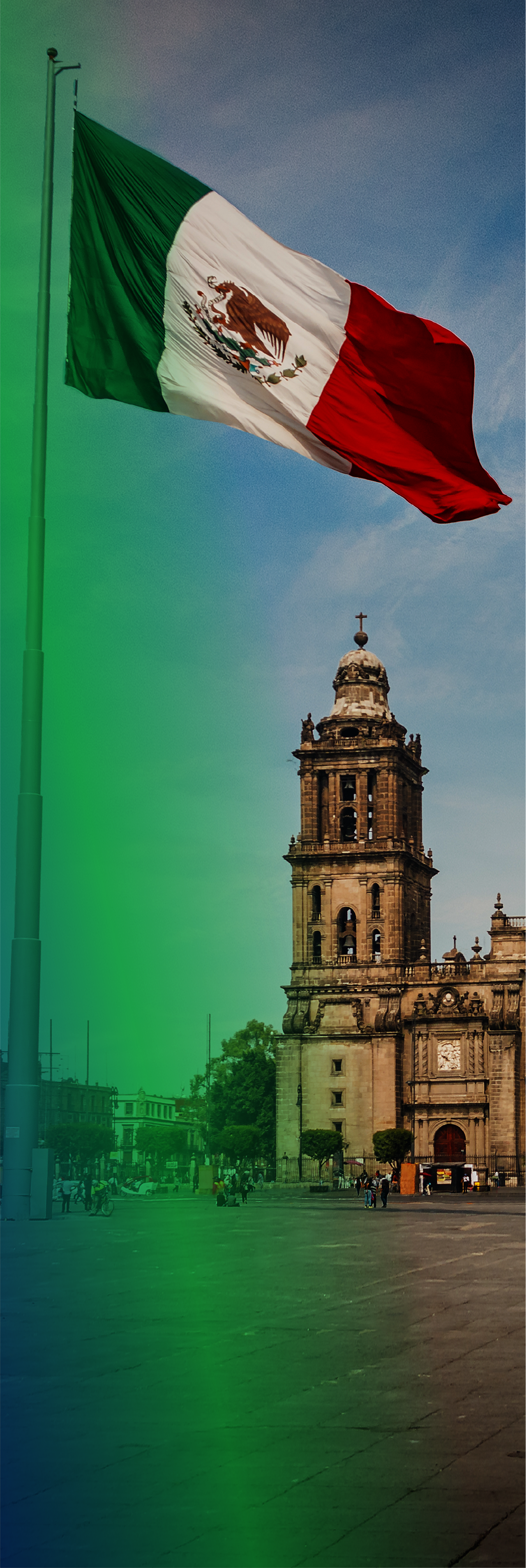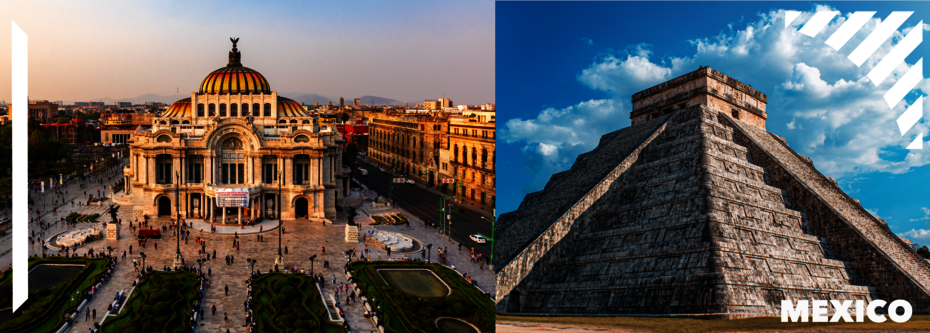Mexico has been a non-regional CABEI member since 1992 with an authorized stake of USD306.25 million in the Bank's share capital and capital contributions of USD76.56 million, ranking as the third largest shareholder within the group of non-regional members with 5.03%.
The contribution that Mexico channels to the Central American region through CABEI is based on various financial cooperation instruments with Banco Nacional de Comercio Exterior S.N.C. (Bancomext) for a total amount of USD520.8 million. The relationship between the Bank and this country was solidified in 2008 with the launching of the Central American Social Housing Development Program. It falls under the framework of the Mesoamerican Integration and Development Project (formerly Plan Puebla Panamá). Since that date, the Mexican government has made resources available to develop a sustainable market for long-term housing finance in the Central American region that addresses the housing deficit and future needs in this area. Throughout the Program's existence, 59 disbursements have been made through 14 intermediary institutions. In total, 192.7% of the initial financing available has been channeled, benefiting a total of 8,032 low- income households, which can now enjoy a more dignified home.
CABEI supports the entrepreneurial spirit of the region and the growth of MSMEs

Through the entrepreneurial DINAMICA Initiative, it strengthens growth, capitalization, and expands its business to new markets.
San José, April 21, 2018 (AFP SERVICES/CABEI). Five years ago, Priscila Aguirre began with her innovative souvenir brand Holalola, in which she presented exclusive designs of Costa Rican motifs for the local market, but now she is looking not only to expand her business and create new varieties of her successful product, but also to insert herself in new markets, like Mexico.
The possibility of expanding her company, located in the Los Yoses neighborhood (east of San José, Costa Rica), has been supported since the end of last year by an advisory program of the Central American Bank for Economic Integration (CABEI) with funds from European Union (LAIF funds) and the Government of Germany through KfW.
"They have pointed us north. It has been very enriching, it is like going out and seeing one's business from another place," says the businesswoman, assessing the new vision and the progress she was provided by the DINAMICA Initiative, a program that CABEI develops with Costa Rican government entities.
Through the Britt company, Holalola's designs, which have been converted from paper and cardboard into umbrellas and tennis shoes, are present in the Juan Santamaría (Alajuela) and Daniel Oduber (Guanacaste) Costa Rican airports, as well as 38 other stores in strategic sites popular with tourists, such as Tamarindo, Puerto Viejo, Manuel Antonio and La Fortuna.
"When CABEI presented the Initiative to us at the end of last year, we wanted to see what we could do to work together with Britt in another country, in other airports. Now we are starting with a pilot project at the Benito Juárez airport (Mexico). They were presented with a collection featuring Mexican motifs. CABEI's advice has helped us a lot," said the entrepreneur.
"With the support of the Managers of the DINAMICA Initiative, I first diagnosed the company to see how it stood: who its clients were and where we could grow. The other counterpart, specifically for Mexico, was very much like ours, a small company, with whom we could find providers that could supply for us and move from an airport that serves three million tourists, like Juan Santamaría, to 30 million at Benito Juárez," she added.
It is thanks to this type of cases that CABEI, with its DINAMICA Initiative, commemorates the International Day of Creativity and Innovation on April 21, and confirms its commitment to innovative initiatives that allow the strengthening, growth and capitalization of the Micro, Medium and Small Businesses (MSMEs).
A Paper and Cardboard Story
Aguirre, who used to design album covers for local music groups, points out that the planned expansion of the company involves a lot of material, such as cardboard and paper. "We are being helped with imports and exports, which is a first for us. We also get to look at new options, such as the possibility of producing over there or registering the brand in another country. It has been very enriching," she said.
"I feel very supported. I feel we have a clearer north. Before, I focused solely on tourism. With this cooperation, I saw that there are many more possibilities for the brand in other areas. A Costa Rican brand can be done, with several types of products that people will want to take home, and not just to have when traveling," says Aguirre.
Like Holalola, a group of innovative MSMEs with similar problems and concerns receive assistance from the DINAMICA Initiative. The companies are in different stages, but all are in their growth processes and desire to strengthen their standing in the national market and join the international market.
The Initiative executed by CABEI goes two different ways. There are 44 million dollars for reimbursable loans and 4.2 million dollars of non-reimbursable resources made available to entrepreneurs and innovators like Priscila Aguirre. Of the latter funds, 47 programs have been approved with an investment of 2.3 million dollars, according to Sergio Avilés, coordinator of the Financing Unit for the CABEI Majority.









